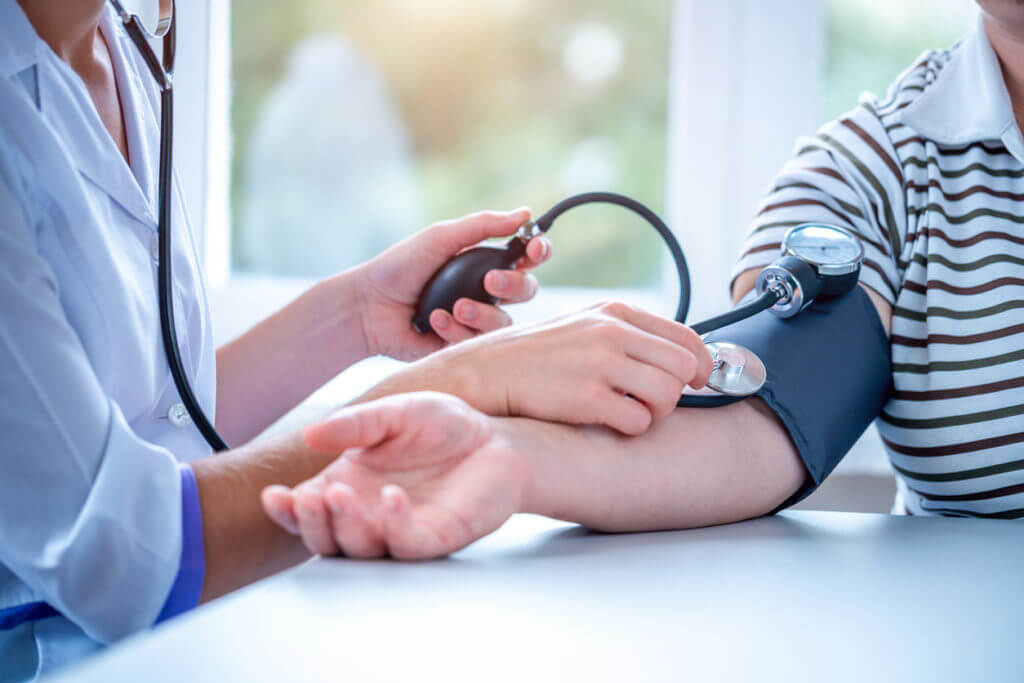
Hypertension refers to chronically high blood pressure. While most cases of hypertension don’t cause direct symptoms, the condition can damage the cardiovascular system over years. Treating high blood pressure can prevent further complications and help you maintain a healthy circulatory system.
Fortunately, there are many effective treatments for hypertension. A combination of lifestyle changes and medication can bring your blood pressure under control and keep you in top shape.
Heart-Healthy Diet
When a patient first develops hypertension, the first intervention that doctors commonly recommend involves dietary changes. A heart-healthy diet:
- Contains fruits and vegetables
- Limits the amounts of simple carbohydrates and fats
- Is low in sodium
A dietary plan called the Dietary Approaches to Stop Hypertension or DASH also helps hypertensive patients.
Sodium
Doctors typically advise hypertensive patients to limit their sodium consumption. Sodium encourages the body to hold on to water, increasing blood volume and promoting high blood pressure.
High sodium levels also cause the blood vessels to contract more, further elevating pressure. Healthy patients should limit daily sodium intake to 2,300 mg, while hypertensive patients should aim for less than 1,500 mg.
Potassium
A heart-healthy diet contains high amounts of potassium, which has the opposite effects of sodium. It allows the body to retain less fluid and helps blood vessels relax. A good rule of thumb is to aim for 3,500 to 5,000 mg of potassium intake daily.
A proper diet is also essential for managing your weight. The excess weight forces your heart to work harder to pump blood, causing blood pressure to rise. Overweight patients need to make dietary changes to reduce their weight.
Physical Activity
Regular physical activity is beneficial for the cardiovascular system. Exercise strengthens the heart and helps blood vessels relax, allowing the cardiovascular system to move blood effectively.
Generally, patients should have at least 30 minutes of moderate exercise daily. Aerobic activities jogging or swimming can help manage hypertension, as they target the cardiovascular system and aim to develop endurance.
Strength training at least twice a week is also helpful. It trains the heart to pump blood effectively even when under heavy loads. Consult your doctor to check which exercises are appropriate for you.
Good Quality Sleep
Chronic poor sleep increases the risk of high blood pressure. Unfortunately, many people get less than six hours of sleep per day. Others might have conditions like insomnia that prevent them from getting good sleep.
Patients should develop strong practices to improve their sleep quality. These habits include:
- Adhering to a strict sleep schedule
- Making their sleep area dark and relaxing
- Limiting exposure to nighttime light sources
Quitting Vices
While alcohol confers a relaxing effect for many people, excessive consumption limits your ability to regulate blood pressure. It can also interfere with blood pressure medications. Talk to your doctor to find your optimal consumption level.
Smoking and using other tobacco products contribute to hypertension. Tobacco contains nicotine, an addictive substance that forces blood vessels to constrict. Coordinate with your doctor to develop an effective smoking secession plan.
Stress Management
Stress triggers the fight-or-flight response, temporarily increasing blood pressure. The following may lead to hypertension:
- Constant emotional stress
- Anger issues
- Chronic anxiety
Stress management techniques include identifying and avoiding triggers, allocating enough time to rest, and focusing on what you can control.
Medications
Medications work by using different mechanisms to reduce blood pressure. Your doctor’s prescription will depend on:
- The severity of your hypertension
- Your cardiovascular risk factors
- Your general health status
Diuretics
Diuretics are the first drug class given to people with hypertension. These medications allow your body to hold on to less water, reducing blood volume and pressure.
ACE Inhibitors
Another category of medications is ACE inhibitors. They prevent your body from producing a hormone called angiotensin. This hormone encourages blood vessel contraction, leading to higher blood pressure.
Other Medications
Other medications, such as beta-blockers that reduce heart workload and vasodilators that directly expand blood vessels, can also be helpful. Doctors may recommend them if other medications are ineffective alone.
Hypertension Treatment In Tucson, AZ
You can manage your high blood pressure through lifestyle changes and medications. Many health habits such as eating a healthy diet and exercising regularly are also effective in managing hypertension. These interventions, along with medication and regular medical monitoring, can help bring blood pressure to more healthy levels.
When it comes to hypertension treatment in Tucson, AZ, patients can rely on Dr. Robert E. Lending’s concierge practice. As one of the best internal medicine doctors in Tucson, he offers comprehensive health assessments. He also helps patients manage chronic conditions such as cardiovascular disease and metabolic disorders.
You can reach us at (520) 795-4291. You can also schedule an appointment online with the top internal medicine doctor near you. We look forward to serving you!



